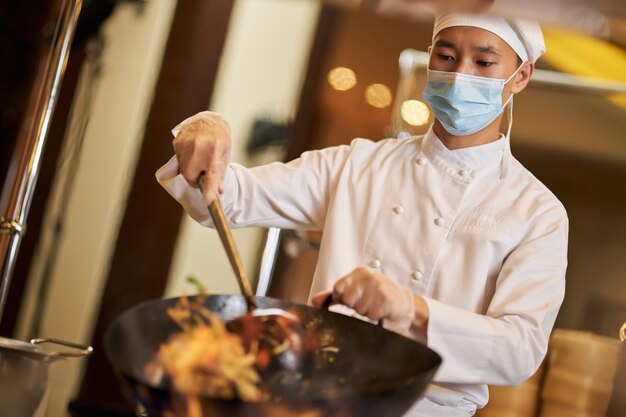Kitchen Workers Confronting 130 Degrees: Health Risks and Solutions Working in a kitchen can be a rewarding and fast-paced career, but it also comes with its share of challenges. One of the most pressing issues faced by kitchen workers is the extreme temperatures they encounter daily. In some busy kitchens, the mercury can soar up
Kitchen Workers Confronting 130 Degrees: Health Risks and Solutions
Working in a kitchen can be a rewarding and fast-paced career, but it also comes with its share of challenges. One of the most pressing issues faced by kitchen workers is the extreme temperatures they encounter daily. In some busy kitchens, the mercury can soar up to a scorching 130 degrees Fahrenheit. This article delves into the health risks associated with such conditions and explores effective solutions to protect the well-being of these essential workers.
The Scorching Challenge: Working in 130-Degree Kitchens
Kitchen workers, including chefs, line cooks, and dishwashers, are the backbone of any food establishment. They toil tirelessly to prepare delicious meals for customers, often working long hours in demanding environments. One such challenge they face is the intense heat that can build up in the kitchen during peak hours. With multiple stovetops, ovens, grills, and other equipment operating simultaneously, the temperature can quickly rise to unbearable levels.

Image by https://truegazette.com/
Understanding the Health Risks for Kitchen Workers
Exposure to extreme heat for prolonged periods poses significant health risks to kitchen workers. Heat-related illnesses, such as heat exhaustion and heatstroke, are not uncommon in these settings. Symptoms like dizziness, nausea, headaches, and even fainting can be early signs of heat exhaustion. Heatstroke, on the other hand, is a severe condition that requires immediate medical attention and can lead to organ damage or even death.
Apart from heat-related illnesses, the hot and humid conditions can also exacerbate pre-existing health conditions, such as respiratory issues and cardiovascular problems. Moreover, the constant exposure to high temperatures can take a toll on mental health, leading to increased stress and fatigue among kitchen workers.
Solutions for Safer Working Conditions
To ensure the safety and well-being of kitchen workers, it is crucial to implement effective solutions to combat the extreme heat. Here are some measures that can be adopted:
- Adequate Ventilation: Installing powerful exhaust systems can help in expelling hot air and steam from the kitchen, maintaining a more comfortable working environment.
- Proper Hydration: Employers should encourage regular hydration breaks for kitchen workers, providing access to cold water at all times.
- Cooling Stations: Setting up designated cooling stations with fans or air conditioning units can give kitchen workers a much-needed respite from the heat during breaks.
- Lightweight and Breathable Uniforms: Providing kitchen staff with appropriate uniforms made of breathable materials can help in regulating body temperature.
- Training and Awareness: Conducting training sessions on heat-related illnesses and their prevention can empower workers to recognize early warning signs and seek help promptly.
Advocating for Change: Improving Kitchen Work Environments
While individual efforts can make a difference, creating a safer working environment for kitchen workers requires collective action. Employers, industry associations, and government authorities must come together to address this issue. Regular inspections and audits can ensure that kitchens meet safety standards, and fines can be imposed on establishments that fail to comply.
Additionally, providing incentives and recognition to businesses that prioritize worker safety can foster a culture of care within the industry. Advocacy groups can play a vital role in raising awareness about the challenges faced by kitchen workers and garnering support for better working conditions.
In conclusion,
kitchen workers confronting 130 degrees face real and significant health risks. Heat-related illnesses and their potential consequences demand urgent attention. By implementing practical solutions and advocating for change, we can ensure that these essential workers are protected and can continue to thrive in their chosen profession. Let us work together to create a safer and healthier future for our kitchen heroes.

















Leave a Comment
Your email address will not be published. Required fields are marked with *